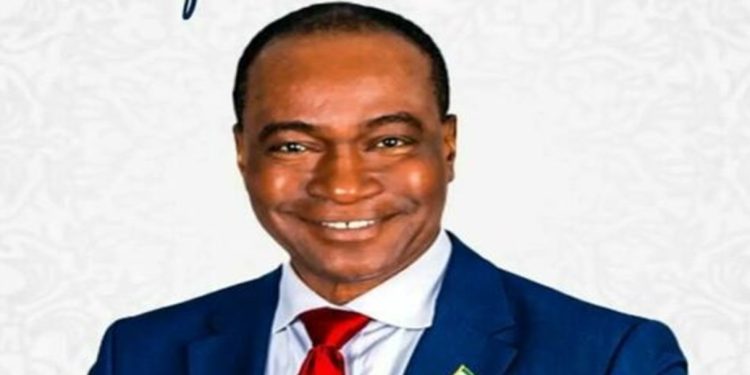By Hassan Osman Kargbo
The former Presidential candidate for the main opposition All People’s Congress (APC), Dr. Samura Kamara, has expressed deep concern regarding a worrying trend of fire incidents impacting significant national landmarks and institutions in Sierra Leone. His statements come in the wake of the latest fire outbreak at State House, the venerable 122-year-old seat of the nation’s leadership, which has alarmed both the public and political leaders alike.
In an official statement released today, Dr. Kamara emphasized the need for the government to provide “convincing explanations” regarding the rise in these fire disasters. He pointed out that the frequency and severity of the fire incidents represent not only a threat to national heritage but also to the stability and security of the country. The opposition leader called on the government to urgently address the troubling fire accident patterns and implement preventative measures to protect critical institutions.
Highlighting specific incidents, Dr. Kamara noted a series of destructive fires experienced across the nation in recent years. Among the most tragic was the fire that destroyed the historic Cotton Tree—a significant cultural symbol for the people of Sierra Leone. Dr. Kamara referenced other serious incidents, including the blaze at the Ministry of Trade in June 2020, the fire at the Ministry of Social Welfare in 2019, and various damages inflicted on the offices of the Electoral Commission located in eastern Freetown.
He also raised alarms about unexplained fire outbreaks affecting farms in northern regions, which threaten the agricultural industry and food security.
The latest event—the fire at State House—has catalyzed the urgency of Dr. Kamara’s concerns.
He characterized State House as a place of national identity, being the former residence of the colonial Governor, and later the Prime Minister, before it became the official residence of the President. Its historical significance represents the evolution of Sierra Leonean governance and independence. Therefore, Dr. Kamara underscored that any threat to such a crucial institution must be treated with the utmost seriousness.
“The repeated outbreaks of fire at critical national sites raise grave questions about the effectiveness of our disaster management and prevention measures,” Dr. Kamara stated. He went on to insist that protecting the nation’s heritage and institutions should be a top priority for the government. “As citizens, we are entitled to feel safe in our own homes and institutions. The government cannot remain passive in the face of this alarming trend,” he added.
In light of such concerns, Dr. Kamara has called for a comprehensive investigation into the causes of the fire incidents and a robust response strategy aimed at preventing such disasters in the future. He advocates for the establishment of a more proactive approach to fire safety, including better infrastructure, fire safety training, and public awareness campaigns.
The opposition leader’s remarks resonate with public sentiment, as many Sierra Leoneans express fears regarding the safety of important national institutions. Citizens and activists have begun to rally for increased accountability from the government concerning fire safety protocols and emergency responses.
Dr. Kamara concluded by urging the government to recognize the gravity of the fire incidents and to act swiftly to ensure the protection of Sierra Leone’s landmarks and institutions. “Our rich heritage and history should not be allowed to go up in flames,” he reiterated. “It is our duty to preserve what is significant for future generations.”
As Sierra Leone navigates these challenging issues, the call for action is a reminder of the critical responsibility of the government to safeguard its cultural heritage and public institutions. Dr. Kamara’s emphasis on accountability and preventive measures highlights the need for a united effort to address the underlying issues contributing to this growing threat.
With the impending elections, these pressing matters will likely remain at the forefront of public discourse, influencing both political strategies and voter sentiment.










